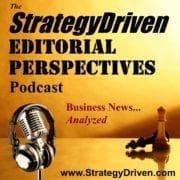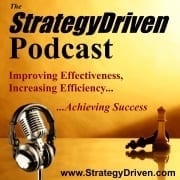StrategyDriven Editorial Perspective – No Free Lunch

“You don’t make the poor richer by making the rich poorer.”
Winston Churchill
Prime Minister of the United Kingdom (1940-45, 51-55)
and Nobel Laureate (literature)
The following video is that of a lecture made by Nobel Laureate and Economist Milton Friedman. In his discussion, Dr. Friedman illustrates why there is no free lunch, why no combination of government programs can simultaneously create wealth and prosperity for all individuals. Thus, when government spends money, it is always at someone’s expense. He goes on the dispel the myth that corporations pay taxes of any sort and how continuing such policies further injures the economy and employees.
Dr. Friedman’s assertions are not political but are instead based on sound economic theory and real-world experiences. These principles equally apply to organizations to the extent that compensation, benefits, privilege, and authority are proffered in a manner inconsistent with the value contribution of the individual.
StrategyDriven Recommended Practices
Highly accountable organizations benefit from the premise that there is no free lunch. Executives, managers, supervisors, and individual contributors are held accountable for their actions and contributes both positively and negatively. StrategyDriven leaders should therefore take the actions necessary to create and promote accountability throughout their organization. At a high level, these actions include:
- Clearly defining the organization’s mission in terms of quantifiable goals and values
- Broadly communicate the organization’s mission and values
- Cascading these mission goals into a performance metric system that establishes the results to be achieved at each level of the organization and ultimately by each employee
- Codify the individual level performance metrics and organizational values within position descriptions, observation programs, and individual performance goals
- Award organizational positions based on individual knowledge, skills, experience, contributions, and adherence to the organization’s values
- Establish a compensation and benefits program that equitably distributes rewards based on an individual’s value contribution and adherence to the organization’s values
- Provide continuous, ongoing feedback and coaching to both reinforce the achievement of the organization’s goals in a manner consistent with its values and to further develop personnel and improve performance
“Organizational accountability exists when all members of the workforce individually and collectively act to consequentially promote the timely accomplishment of the organization’s mission.”
StrategyDriven Contributors
Additional Information
StrategyDriven believes the practice of ‘no free lunch’ reflects an organizational commitment to praise-worthy values. Leaders seeking to infuse their organization with such beliefs are supported by the tools presented in our principle, best practice, and warning flag articles within the following topics:











Leave a Reply
Want to join the discussion?Feel free to contribute!